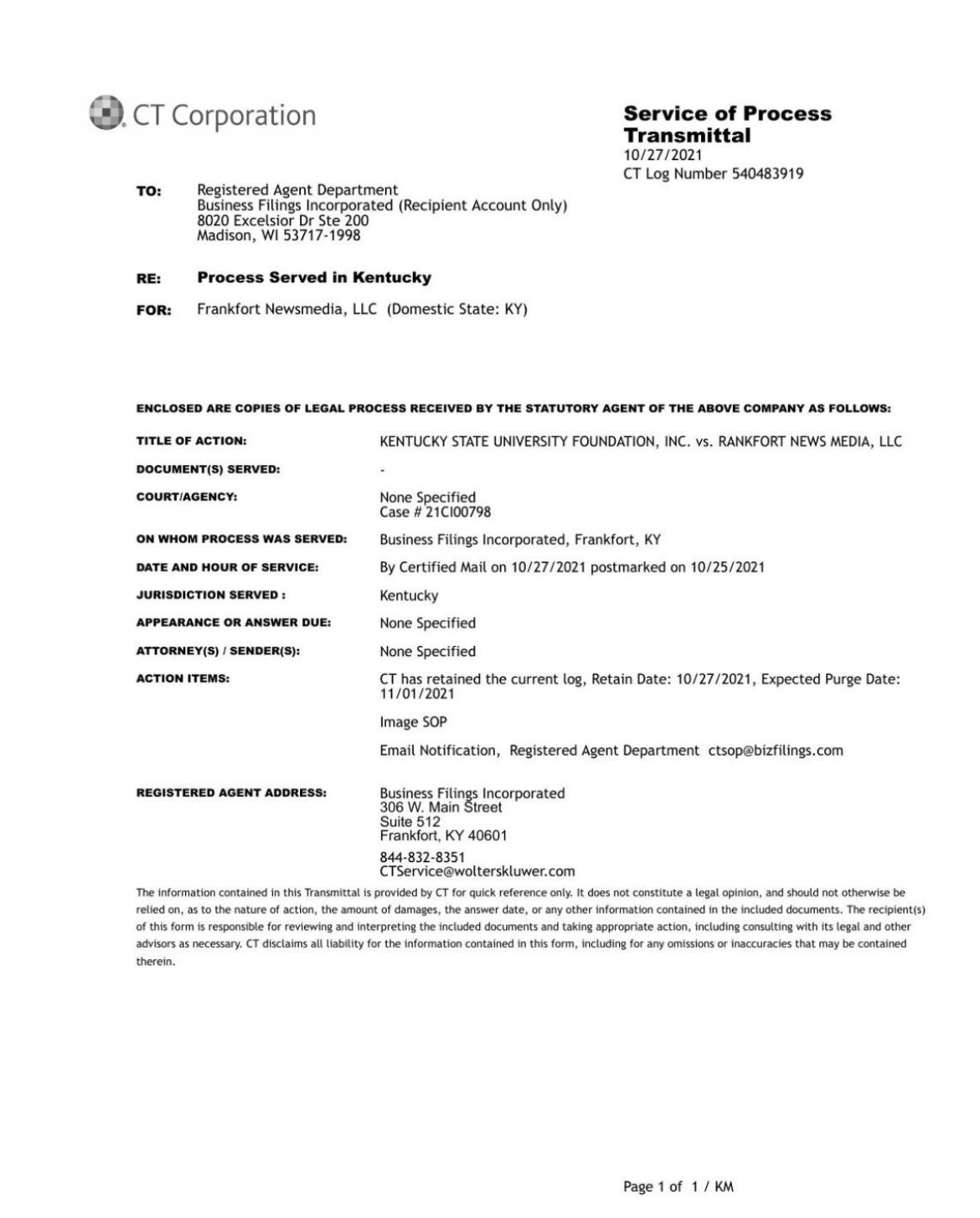
The status of university foundations under the state’s open records law is largely a settled legal issue in Kentucky. The courts have determined that the records of such foundations are public records, governed by the open records law.
In 1993, the Kentucky Supreme Court rejected the Kentucky State University Foundation’s claim that foundation records were not subject to public inspection. The Court reasoned:
“An interpretation of K.R.S. 61.870 (1), which does not include the Foundation as a public agency, is clearly inconsistent with the natural and harmonious reading of K.R.S. 61.870 considering the overall purpose of the Kentucky Open Records law. The obvious purpose of the Open Records law is to make available for public inspection, all records in the custody of public agencies by whatever label they have at the moment. Statutes are to be interpreted with a view to promote their objects and to carry out the intent of the legislature.
“Although K.R.S. 61.870 (1) may be somewhat inartfully drawn [it has since been amended], it is the holding of this Court that the phrase ‘or agency thereof’ is applicable to all units of government listed before it in the same subsection. It is the clear intent of the law to make public the records of all units of government by whatever title for public inspection.”
Frankfort Pub. v. Kentucky St. Un. Found, 834 S.W.2d 681 (Ky. 1992).
Eleven years later the Kentucky Court of Appeals ruled that the University of Louisville Foundation, Inc., is a public agency under the Open Records Law. The court ruled that the Foundation, created by and for the benefit of the University of Louisville, which controlled the endowment of the University, is a public agency under the open records law.
University of Louisville Foundation, Inc., v. Cape Publications, Inc, d/b/a/The Courier Journal, 2003 WL 22748265 (unpublished)
The Supreme Court affirmed the intermediate appellate court’s unpublished opinion in the 2008 case finally resolving the issue of access to University of Louisville Foundation donor records in the public’s favor.
https://caselaw.findlaw.com/ky-supreme-court/1439464.html
The overwhelming weight of legal authority notwithstanding, the Kentucky State University Foundation sued The Frankfort State Journal on October 22, 2021, challenging a September attorney general’s decision reaffirming a 1992 Kentucky Supreme Court opinion determining that the Foundation is a public agency subject to the open records law.
https://www.state-journal.com/education/ksu-foundation-takes-sj-to-cour…
The State Journal is represented in the pending case by premier First Amendment and open government attorney, Jeremy Rogers. Rogers also serves on the Board of Directors of the Kentucky Open Government Coalition.
A settled issue of law? Yes, but not to the satisfaction of the Kentucky State University Foundation.
*****
The Albuquerque Journal reports on a major open records victory involving university foundations in New Mexico:
“Records of university foundations and athletic booster clubs are not exempt from the state’s transparency law, the New Mexico Court of Appeals said in an opinion issued Thursday.
“A three-judge panel issued the opinion in response to an appeal from the University of New Mexico Foundation and the Lobo Club in two district court lawsuits.
“Court of Appeals Judge Megan Duffy, writing on behalf of the panel, said nothing in state law offers blanket exemptions to the state’s Inspection of Public Records Act, or IPRA, for university foundations and booster clubs.
“Greg Williams, a New Mexico Foundation for Opening Government board member, said the opinion clarifies that fundraising groups for state universities are subject to the state’s public records law.
“‘I think it is very significant when it comes to UNM and other state universities,’ Williams said of the opinion. ‘It ensures that universities will not be able to hide fundraising information by setting up separate foundations.’
“The opinion found that 2nd Judicial District Judge Nancy Franchini ruled correctly when she found that the UNM Foundation and the Lobo Club needed to turn over records to independent journalist Daniel Libit.
“The Court of Appeals remanded one of the cases back to district court.
“‘We always felt that the law was very clear,’ Libit said. ‘You cannot play hide the ball with public records by claiming they exist in entities that are, for all intents and purposes, holding public records and doing the public’s business.’
“In its opinion, the Court of Appeals found that the law ‘specifies that annual audits are public records, but does not specifically exempt any records from disclosure.’
“The law says only that the annual audit is a public record, but it doesn’t exempt other records, the opinion states.
“‘When the Legislature has intended to exempt records from public inspection … it has done so expressly…’ the judges noted.”
https://www.abqjournal.com/2491457/appeals-court-records-of-university-…


